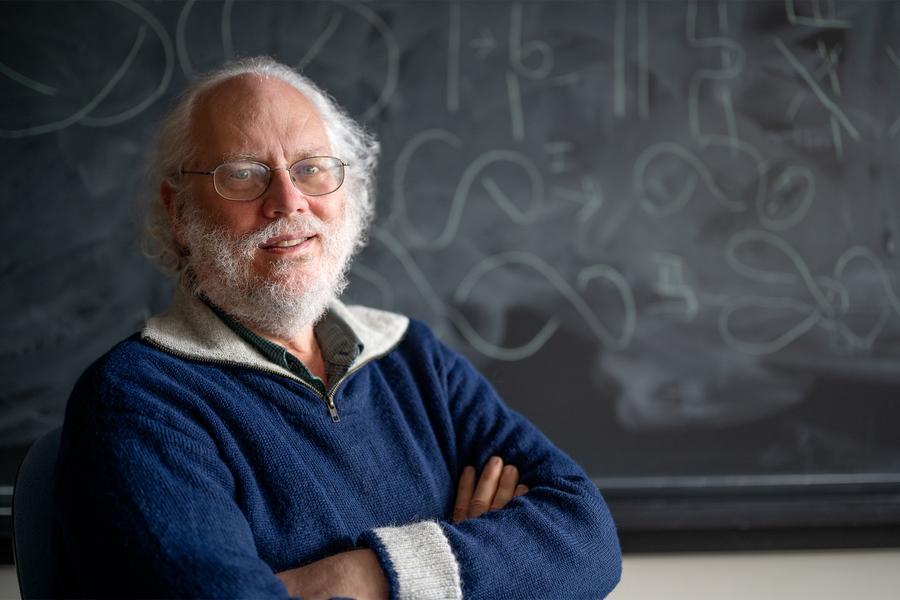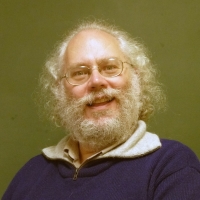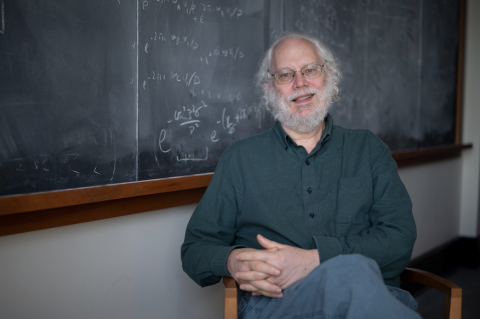MIT professor and CSAIL principal investigator Peter Shor has been awarded the 2023 Breakthrough Prize in Fundamental Physics for foundational work in the field of quantum information. The award recognizes physicists “who have made profound contributions to human knowledge.”
Shor, who is currently focused on quantum algorithms, famously developed Shor’s algorithm in 1995, which proved that a computing system of quantum bits, or “qubits,” could solve problems faster than classical computers, which run on standard bits, or binary digits.
Still, quantum computers were prone to two ongoing problems: bit errors and phase errors. But thanks to Shor’s subsequent efforts with quantum error correction, the advanced computers were able to solve increasingly complex problems. With the help of his algorithm, quantum computers can currently factor up to 21 digits — but Shor envisions they will eventually factor a 500-digit number before classical computers do, among other tasks.
“In five or 10 years, we could be at the start of a Moore’s Law, where quantum computers will steadily improve every few years,” Shor predicts. “I suspect they’ll improve fast enough that within two or three decades we will get quantum computers that can do useful stuff. Hopefully by the time quantum computers are that large, we’ll be using different crypto systems that aren’t susceptible to quantum computers.”
For now, it remains mysterious. “Quantum mechanics is really strange, and I don’t think there’s ever going to be any easy way of understanding it,” says Shor.
Shor will share the $3 million prize with Charles Bennett of IBM, Gilles Brassard of the University of Montreal, and David Deutsch of the University of Oxford for their work in quantum.
In the early 1980s, Deutsch began thinking of problems whose solutions could be sped up using quantum algorithms — formulas that were derived using the laws of quantum mechanics, rather than classical physics. He was the first to develop a quantum algorithm that could solve a simple, albeit contrived, problem far more efficiently than a classical algorithm.
Meanwhile, Bennett and Brassard were also looking for uses of quantum information. In 1984, they developed the first quantum cryptography protocol, BB84. They put forth the idea that two distant parties could agree on a secret encryption key, which would be secure against eavesdroppers, based on a strange quantum principle in which the value of the encryption key would instantly be disturbed and therefore unreadable when measured.
Their work demonstrated the first practical application of quantum information theory. It was also Shor’s first introduction to the field. The mathematician was working at AT&T Bell Labs at the time, and Bennett came to give a talk on his new quantum key encryption system. “Their work inspired me to do a little thinking and research on quantum information,” Shor recalls. “But I didn’t really get anywhere at the time.”
“With these two bombshell contributions, Peter set the stage for quantum computing to become the huge field that it is now,” says Alan Guth, the Victor F. Weisskopf Professor of Physics at MIT, who as a former recipient of the Breakthrough Prize, was the one who called Shor to deliver the news of this year’s award.
“It was a real pleasure for me to be able to tell him that he is one of the winners,” Guth says. “His algorithms took the world by surprise, and ignited the field of quantum computing. And despite his spectacular contributions, Peter continues to be a warm, friendly, smiling colleague to all around him.”
“Indeed, quantum computing exists today, in practice, because of Peter Shor,” remarked organizers from MIT’s 2022-2023 James R. Killian Jr. Faculty Achievement Award. When the professor received the honor earlier this year, the citation also noted his contributions to quantum information science and quantum cryptography. Shor’s work demonstrates how quantum computing solves problems more efficiently across both fields.
In addition to the Breakthrough Prize and Killian Award, Shor previously won the MacArthur Fellowship, the King Faisal International Prize in Science, and the BBVA Foundation Frontiers of Knowledge Award. He is a fellow of the American Academy of Arts and Sciences, the American Mathematical Society, and the Association for Computing Machinery, as well as a National Academy of Sciences and the National Academy of Engineering member.



